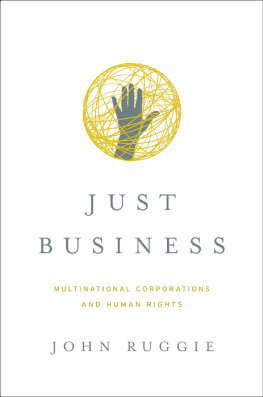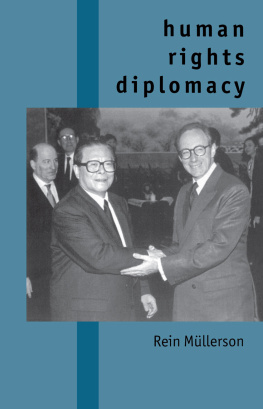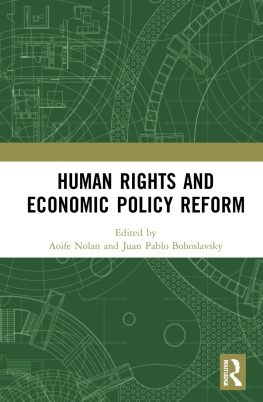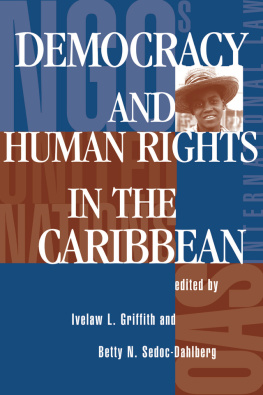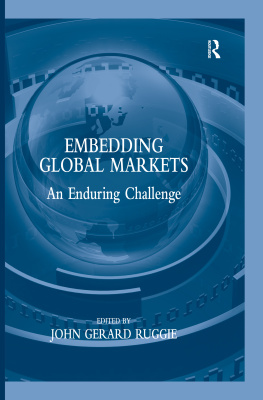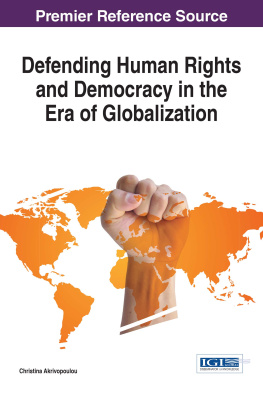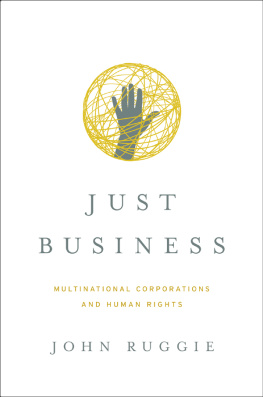
AMNESTY INTERNATIONAL GLOBAL ETHICS SERIES
General Editor: Kwam e Anthony Appiah
In December 1948, the UN General Assembly adopted the United Nations Declaration of Human Rights and thereby created the fundamental framework within which the human rights movement operates. That declarationand the various human rights treaties, declarations, and conventions that have followedare given life by those citizens of all nations who struggle to make reality match those noble ideals.
The work of defending our human rights is carried on not only by formal national and international courts and commissions but also by the vibrant transnational community of human rights organizations, among which Amnesty International has a leading place. Fifty years on, Amnesty has more than two million members, supporters, and subscribers in 150 countries, committed to campaigning for the betterment of peoples across the globe.
Effective advocacy requires us to use our minds as well as our hearts; and both our minds and our hearts require a global discussion. We need thoughtful, cosmopolitan conversation about the many challenges facing our species, from climate control to corporate social responsibility. It is that conversation that the Amnesty International Global Ethics Series aims to advance. Written by distinguished scholars and writers, these short books distill some of the most vexing issues of our time down to their clearest and most compelling essences. Our hope is that this series will broaden the set of issues taken up by the human rights community while offering readers fresh new ways of thinking and problem-solving, leading ultimately to creative new forms of advocacy.
FORTHCOMING AUTHORS:
Philip Pettit
Sheila Jasanoff
Martha Minow
JUST BUSINESS
Multinational Corporations and Human Rights
John Gerard Ruggie

Dedicated to
Kofi A. Annan
son of Ghana, citizen of the world,
and my favorite boss
CONTENTS
T his book is a reflection on an unusual global policy process. In 2005 what was then the United Nations Commission on Human Rights (now Human Rights Council) created a mandate for an individual expert to look anew into the subject of business and human rights, following years of failing to find common ground between opposing sides. The United Kingdom initiated the idea and secured its adoption. To give the position greater visibility, the Council asked the UN Secretary General to appoint the mandate-holder as his Special Representative. Kofi Annan, who was Secretary-General at the time, asked me to take on the assignment. The task I was initially given was largely descriptive: identifying what international human rights standards currently regulate corporate conduct, as opposed to the conduct of states and individuals; and clarifying the respective roles of states and businesses in safeguarding these rights. In principle, the mandate included all types of businesses, large and small, although in practice it was intended to shed particular light on multinational corporations. Multinationals operate as globally integrated entities but are not subject to any single global regulator, thus creating governance challenges not posed by large national firms let alone corner grocers.
The mandate kept expanding until, six years later, the Human Rights Council unanimously endorsed a set of Guiding Principles on Business and Human Rights that I had developed, with the support of business associations and individual firms as well as civil society and workers organizations. Other international and national standard-setting bodies have incorporated the Guiding Principles, companies have begun to align their practices with them, and advocacy groups use them in their campaigning work. The Guiding Principles have even featured in a crucial case before the United States Supreme Court concerning whether and under what circumstances the 1789 Alien Tort Statute, originally intended to combat piracy among other things, applies to the overseas conduct of corporations irrespective of where their home base may be. My aim in this book is to explain how the mandate got from there to here, what it means for the protection of human rights against corporate-related harm, and what lessons it might hold for responding to evermounting global governance challenges.
Once I managed to raise sufficient funds from interested governments, I was able to recruit a superb team of professionals without whom it would have been impossible to construct the building blocks for the Guiding Principles: conducting intensive research and extensive consultations; organizing global networks of volunteers in law firms, universities, NGOs, and businesses; initiating pilot projects; and producing several thousand pages of documentary materials. The eight who crossed the finish line with me are Christine Bader, Rachel Davis, Gerald Pachoud, Caroline Rees, Andrea Shemberg, John Sherman, Lene Wendland, and Vanessa Zimmerman. Although we were physically scattered across time zones we worked together seamlessly as one team, with good humor making us forget insane workloads and travel itineraries. No mere words of thanks can do justice to their immense contributions. The Guiding Principles are as much their achievement as mine. Amy Lehr, Michael Wright, and David Vermijs were with us for parts of the journey and Jonathan Kaufman helped get me started.
The political process of moving the mandates work through the Human Rights Council, a quasi-legislative body, was managed by five countries: Argentina, India, Nigeria, Norway, and Russia. Each played key roles within their respective regional groups. Norway had the overall lead. Ambassador Bente Angell-Hansen, together with her colleagues in Geneva and Oslo including Foreign Minister Jonas Gahr Stre, made gaining Council endorsement of the Guiding Principles a personal and national priority. On the business side, the mandate benefited greatly from cooperative relationships with the International Chamber of Commerce, the International Organisation of Employers, and the Business and Industry Advisory Committee to the Organisation for Economic Cooperation and Development. Civil society organizations participated in all forty-seven mandate consultations, and several, including Global Witness and Oxfam, worked particularly closely with us. It isnt possible to list all of the other institutions and individuals that became part of our extended teamfor example, the more than two dozen law firms around the world that conducted pro bono research for us, on which I draw in subsequent chapters. But I do want to single out three legal analysts who followed the mandate closely and provided real-time big-picture assessments when I was struggling through the weeds: Larry Cat Backer, Andrew Clapham, and Mark Taylor. I am also grateful to Mary Robinson, former President of Ireland and UN High Commissioner for Human Rights, for sharing her wisdom on human rights and speaking up for me when some questioned mine.
I dedicate this book to Kofi Annan, for whom I had the honor to work in several capacities for more than a decade. He is an inspirational leader, eager to try out-of-the-box approaches to seemingly insoluble problems, and a profoundly humane person, caring deeply about the individuals around him as well as about our common fate on this planet. He has been a great boss, wonderful mentor, and dear friend.
My deepest debt is to my wife, Mary Ruggie, whose human rights these past seven years have not benefited from my endeavors to advance them for others. My next project is to try and make that up to her.
Next page
